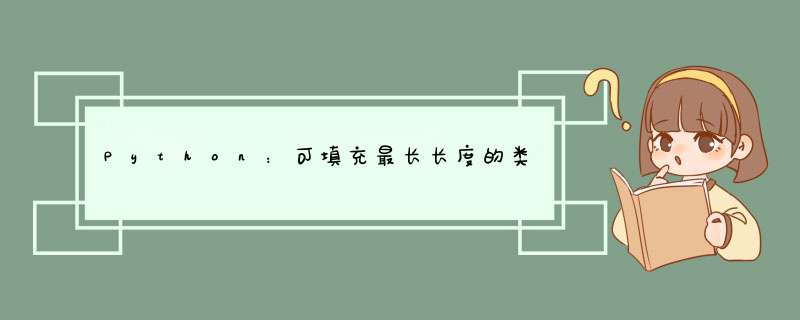
在Python 3中,你可以使用
itertools.zip_longest
>>> list(itertools.zip_longest(a, b, c))[('a1', 'b1', 'c1'), (None, 'b2', 'c2'), (None, 'b3', None)]你可以None使用与
fillvalue参数不同的值进行填充:
>>> list(itertools.zip_longest(a, b, c, fillvalue='foo'))[('a1', 'b1', 'c1'), ('foo', 'b2', 'c2'), ('foo', 'b3', 'foo')]使用Python 2,你既可以使用
itertools.izip_longest(Python的2.6+),也可以使用map与None。这是的鲜为人知的功能map(但map在Python 3.x中有所更改,因此仅在Python 2.x中有效)。
>>> map(None, a, b, c)[('a1', 'b1', 'c1'), (None, 'b2', 'c2'), (None, 'b3', None)]欢迎分享,转载请注明来源:内存溢出

 微信扫一扫
微信扫一扫
 支付宝扫一扫
支付宝扫一扫
评论列表(0条)